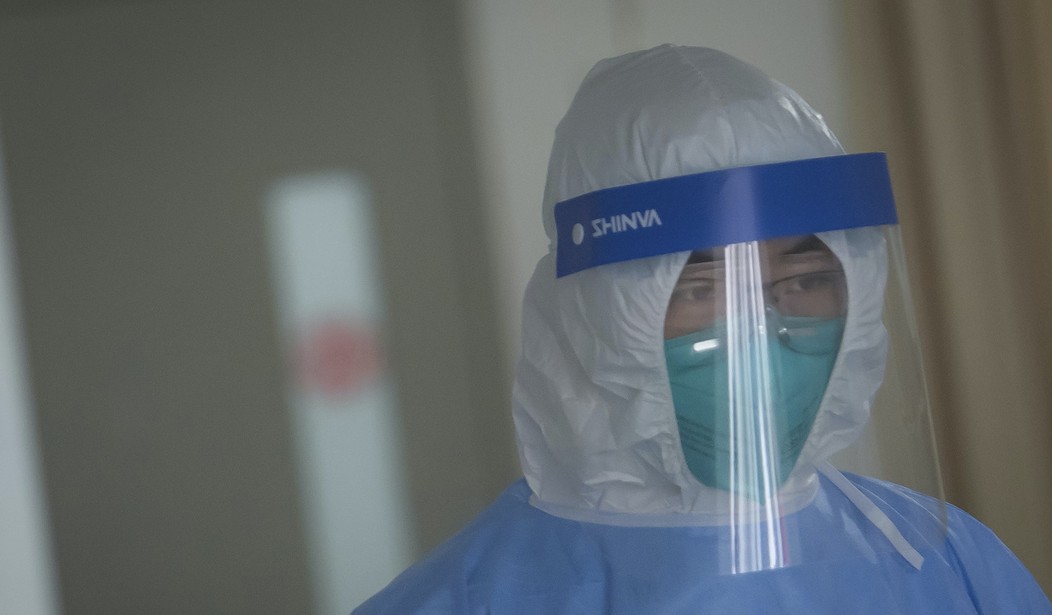With outbreaks raging in Italy, Iran, South Korea and other countries, U.S. authorities now predict coronavirus will strike Americans here, causing "significant disruptions to our lives." The warning came from Centers for Disease Control and Prevention official Nancy Messonnier at a Tuesday briefing.
If the virus -- now dubbed COVID-19 -- starts to infect large numbers of people inside the U.S., here's what you need to know.
Is the virus spreading here now?
The only known U.S. cases are travelers to China, their spouses and cruise ship passengers. But people carrying the virus entered the U.S. before the Trump administration imposed travel and quarantine restrictions on Feb. 2. Those early arrivals are likely spreading the disease to others. As of Tuesday, the CDC insists that the virus "is NOT currently spreading in the community in the United States." Maybe, but the CDC assessment is based on a lack of testing and actual information. They're flying blind.
In six locations, including New York, federal labs are starting to test specimens from patients with flu-like symptoms to try to identify where in the U.S. the virus might already be.
Even that testing won't tell the whole story. People with no symptoms spread it, explains Marion Koopmans of the World Health Organization. It could become a "pandemic," meaning a disease that causes widespread death on several continents. Or it could fizzle out.
What should people do to protect themselves?
Stay out of hospital emergency rooms unless you are severely ill or injured. For now, it's the likeliest place to catch coronavirus.
Anyone unknowingly suffering from coronavirus is likely to go there. That's what "patient zero" in Italy did. When another coronavirus -- SARS -- struck Ontario, Canada in 2003, an infected man waited for 16 hours in a crowded ER, infecting those around him and launching an outbreak that killed dozens.
Recommended
Some countries are canceling public events, closing businesses and schools, and urging people to stay home. Not so in the U.S., though Messonnier sees that coming and warns families to plan accordingly.
Meanwhile, if you take a subway or bus to work, wash your hands afterward and avoid touching your eyes, nose or mouth. The virus is transmitted mostly through coughs and sneezing, but also by touching surfaces like subway poles or chair rails after being touched by an infected person.
If it spreads, the CDC will recommend large-scale environmental cleaning. Think daily disinfection of subway cars and buses.
Are most U.S. hospitals prepared?
No. In the understatement of the year, the CDC tells health care workers to "take care of yourself and follow recommended infection control procedures." Truth is, those procedures don't work.
Even at Johns Hopkins -- one of the highest-rated hospitals in the nation -- research published last week shows doctors and nurses frequently spread bacterial infections from patient to patient, despite following CDC procedures.
Across the nation, 72,000 patients a year die from hospital infections -- spread mostly by unclean hands and equipment. If hospitals can't stop that carnage, how are they going to control a virus that can also spread in tiny droplets in the air? The answer is, they're not.
Health officials should be conducting boot camps to train hospital personnel in more rigorous infection control, similar to what's done in Israel.
Who is most at risk? Health care workers and their families.
This virus is so hard to contain that even top medical personnel are falling victim, despite access to protective gear. Iran's deputy health minister, spearheading the battle against coronavirus, now is infected. Messonnier conceded that in the U.S. there may be a problem supplying health care workers with protective gear. A stunning admission of health bureaucrats caught unprepared.
On Friday, Israel, which has no local spread so far, barred foreigners from participating in the Tel Aviv marathon and blocked foreign travelers from affected regions from entering. Here in the U.S., CDC officials dodged questions on Tuesday about expanding travel restrictions and screening. The next few weeks will show which country is making smarter decisions.
Betsy McCaughey is chairman of the Committee to Reduce Infection Deaths and a former lieutenant governor of New York. Contact her at betsy@betsymccaughey.com.

























Join the conversation as a VIP Member